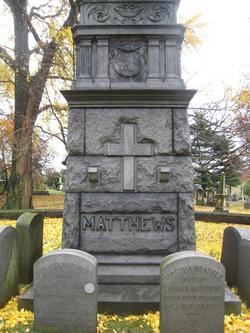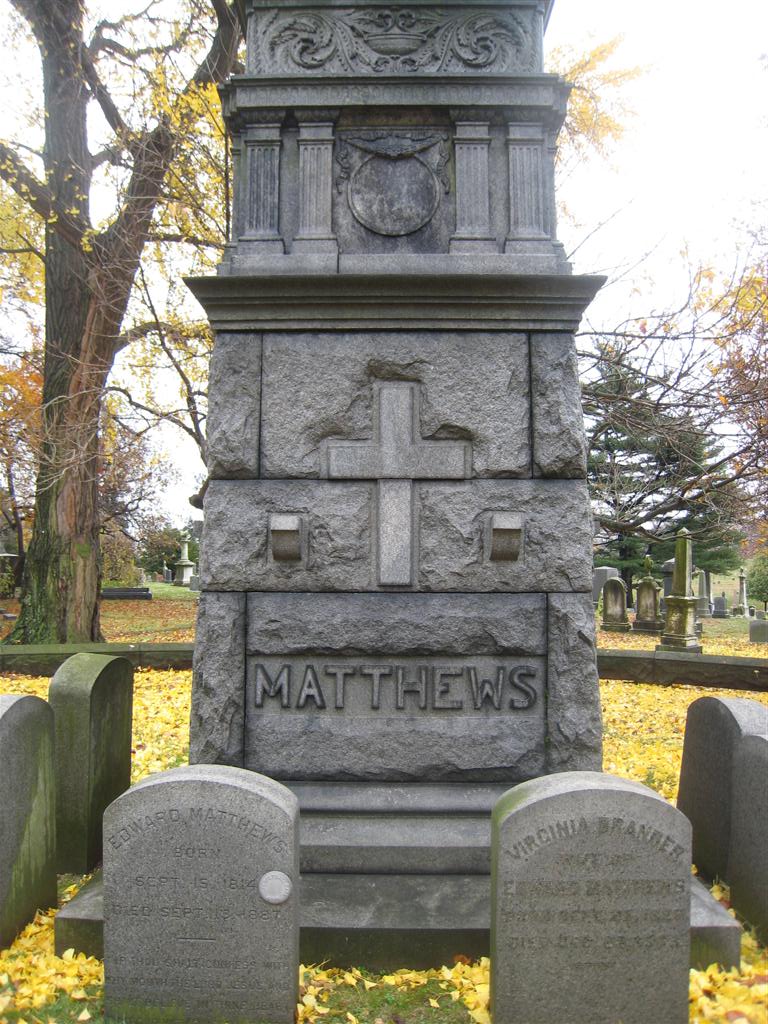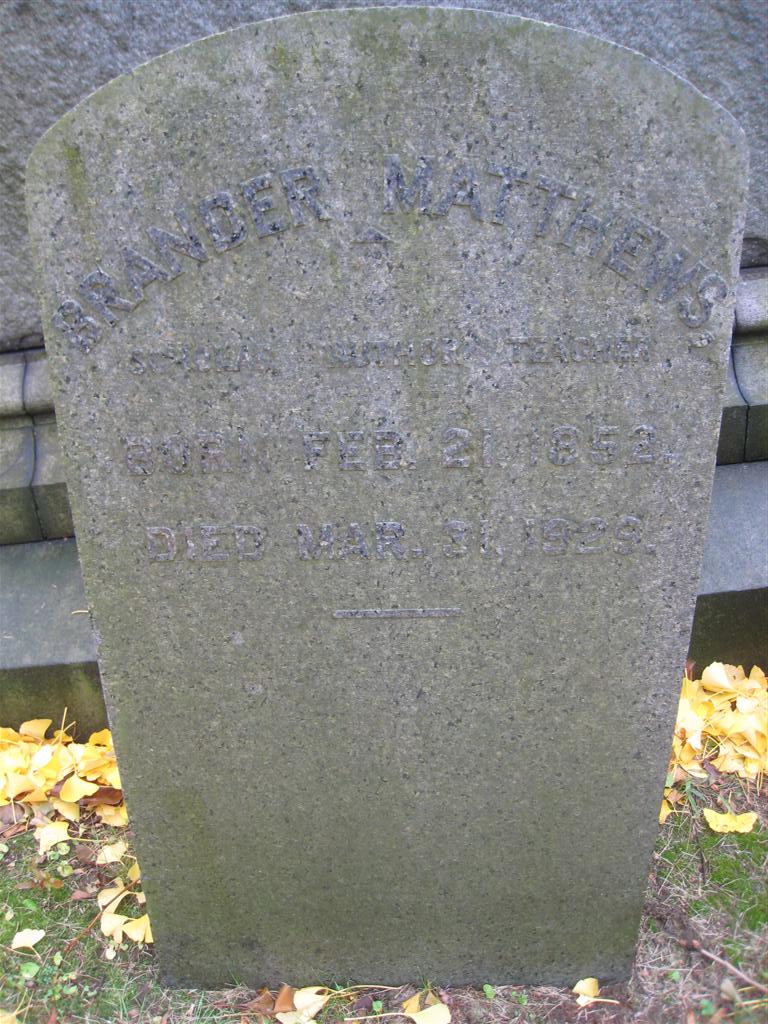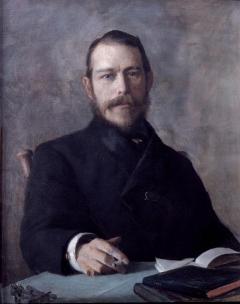February 21, 1852
New Orleans, Louisiana
Died: March 31, 1929
New York City
American writer, educator, essayist, drama critic, novelist, the first U.S. Professor of Dramatic Literature, and leading American scholar and literary critic of the late nineteenth and early twentieth century. Graduated from Columbia College (later Columbia University) in 1871, and from Columbia Law School in 1873. Abandoned Law for a literary career. Professor of dramatic literature at Columbia University from 1892 to 1900, and then became the first U.S. professor of Dramatic Literature. He served on the Columbia faculty for 33 years, retiring in 1924. His books such as French Dramatists of the Nineteenth Century (1881), The Development of the Drama (1903), and Shakespeare As a Playwright (1913) helped establish him as, arguably, the leading American authority in his field. Published widely on American and British authors. His An Introduction to the Study of American Literature, initially published in 1896, was one of the first and most popular textbooks on American literature; it went through several editions and sold more than a quarter million copies. He championed the fiction of Mark Twain, William Dean Howells, and other American writers of the realist school. Among his many admirers was Theodore Roosevelt. Held the chair of Dramatic Literature at Columbia University since 1900. Helped to found The Players, the Authors' club, and The Dunlap Society, and helped organize the American Copyright League. Was first chairman of the Modern Language Association of America in 1910, and was a member of the American Academy of Arts and Letters, serving as its president in 1913. During his tenure at Columbia, created and curated a "dramatic museum" of costumes, scripts, props, and other stage memorabilia. Originally housed in a four-room complex in Philosophy Hall, the collection was broken up and sold after his death. However, its books were incorporated into the university library system and its dioramas of the Globe Theatre and other historic dramatic venues have been dispersed for public display around campus, mainly in Dodge Hall. In 1907 the French government decorated him with the Legion of Honor. Works include The Development of the Drama (1903), Principles of Playmaking (1919), and Playwrights on Playmaking (1923). His gift of model stage sets, costumes, and books is now the Brander Matthews Dramatic Museum at Columbia, and the Brander Matthews Hall, a new theatre arts building on the campus of Columbia University, was opened in 1940.
February 21, 1852
New Orleans, Louisiana
Died: March 31, 1929
New York City
American writer, educator, essayist, drama critic, novelist, the first U.S. Professor of Dramatic Literature, and leading American scholar and literary critic of the late nineteenth and early twentieth century. Graduated from Columbia College (later Columbia University) in 1871, and from Columbia Law School in 1873. Abandoned Law for a literary career. Professor of dramatic literature at Columbia University from 1892 to 1900, and then became the first U.S. professor of Dramatic Literature. He served on the Columbia faculty for 33 years, retiring in 1924. His books such as French Dramatists of the Nineteenth Century (1881), The Development of the Drama (1903), and Shakespeare As a Playwright (1913) helped establish him as, arguably, the leading American authority in his field. Published widely on American and British authors. His An Introduction to the Study of American Literature, initially published in 1896, was one of the first and most popular textbooks on American literature; it went through several editions and sold more than a quarter million copies. He championed the fiction of Mark Twain, William Dean Howells, and other American writers of the realist school. Among his many admirers was Theodore Roosevelt. Held the chair of Dramatic Literature at Columbia University since 1900. Helped to found The Players, the Authors' club, and The Dunlap Society, and helped organize the American Copyright League. Was first chairman of the Modern Language Association of America in 1910, and was a member of the American Academy of Arts and Letters, serving as its president in 1913. During his tenure at Columbia, created and curated a "dramatic museum" of costumes, scripts, props, and other stage memorabilia. Originally housed in a four-room complex in Philosophy Hall, the collection was broken up and sold after his death. However, its books were incorporated into the university library system and its dioramas of the Globe Theatre and other historic dramatic venues have been dispersed for public display around campus, mainly in Dodge Hall. In 1907 the French government decorated him with the Legion of Honor. Works include The Development of the Drama (1903), Principles of Playmaking (1919), and Playwrights on Playmaking (1923). His gift of model stage sets, costumes, and books is now the Brander Matthews Dramatic Museum at Columbia, and the Brander Matthews Hall, a new theatre arts building on the campus of Columbia University, was opened in 1940.
Family Members
Sponsored by Ancestry
Advertisement
Records on Ancestry
Advertisement









